The Iliad begins with a grudge and ends with a funeral. In between are passages, if not necessarily of boredom, to alter the war adage, of lists, pathos, sex, humour, fairytale strangeness (golden fembots, a talking horse) and lyric images, punctuated by moments of pure terror (eyes popped out of heads, a spear throbbing in a beating heart, a man cradling his intestines in his hands). With several new translations in the past year alone, as well as a film in 2004, and recent novels (David Malouf’s Ransom), dramatisations, and book-length poems (War Music by Christopher Logue and Memorial by Alice Oswald), we are clearly, in our era of seemingly perpetual war, in an age of Iliads.
One of those recent books was Caroline Alexander’s The War that Killed Achilles: The True Story of Homer’s Iliad and the Fall of Troy (2009), a close reading-cum-
retelling. Her argument is that the poem is deeply anti-war: Achilles considers the expedition against Troy pointless — he has nothing against the Trojans, and is openly at odds with the army’s literally bloody-minded commander, Agamemnon.
The tragedy is that he will fight and, just beyond the events of the poem, die anyway. Throughout the book, Alexander quotes from Richard Lattimore’s 1951 translation, with the exception of Book 22 (or Book Chi in the Greek, the 24 chapters of the Iliad being named after the letters of the Greek alphabet), which recounts the slaying of the most sympathetic character, the Trojan prince, Hector; this she translated herself. She explains, humbly:
The translation was not made because it was felt that Lattimore’s work could be improved upon, but because this Book is too perfect to be fragmented by commentary, and it seemed an impertinence to lift an entire chapter of another scholar’s work.
As this new Iliad demonstrates, Alexander has evidently had a change of heart, but translation tends to be addictive. (The translator of one epic will often go on to be a repeat offender.) Alexander now acknowledges, in a recent interview, that there would be no reason to undertake such a project unless ‘you thought you could do a better job’, and admits her goal is for this to become the ‘translation of record’. This Homeric boast sounds right to me — writers too often fail to acknowledge the competitive streak, the desire for kleos (glory) and aristeia (feats of excellence) that an undertaking like this requires. Alexander completed the project in five years, a brisk clip. She is also, as far as I know, the first woman to have translated the poem into English.
Alexander’s translation, as one might expect, brings to the fore the anti-war elements. When approached by an embassy of the Greeks to return to battle (Achilles is absent from the fighting for most of the epic), Achilles responds, in
Robert Fitzgerald’s 1974 translation: ‘I had/ small thanks for fighting, fighting without truce/ against hard enemies here. The portion’s equal/ whether a man hangs back or fights his best;/ the same respect, or lack of it, is given/ brave man and coward. One who’s active dies/ like the do-nothing.’ Though equally faithful, Alexander’s version, through word-choice, syntax, rhythm and line break, nudges this speech further from heroic gripe to universal condemnation of war:
. . . it seems to me there is no thanks
for doing battle against enemy men without
respite, forever;
the fate is the same if a man hangs back, and
if he battles greatly,
in equal honour are both coward and
warrior;
and they die alike, both the man who has
done nothing and he who has
accomplished many things.
Kakos and esthlos, which Fitzgerald translates as ‘brave man’ and ‘coward’, and Alexander further interprets as ‘coward’ and ‘warrior’ (she sticks to the Greek word order), are less charged in the original — the man of low estate and the nobleman, perhaps: the good, the bad, and the ugly all get the same (dis)honour in Agamemnon’s army. And the last line, with its sweeping condemnation of war in Alexander (it unfurls biblically over the page), is considered by some scholars suspect, a late interpolation.
Homer’s ‘rapidity’ (one of the four critical aspects of Homer that Matthew Arnold looked for in a translation, the others being plainness of style, simplicity of ideas and nobility of manner) can elude English translators. What is the best equivalent of Homeric dactylic hexameter in English, for instance? Composed of six measures per line (like bars of music), each line containing between 12 and 17 syllables, it is a wave that can compress or rarify, while being consistent in duration. That Greek tends to the polysyllabic means that 17 syllables might only cover a few words.
English translators often arbitrarily choose a five-beat line, iambic pentameter long considered the English heroic equivalent (Chapman’s famous-via-Keats Homer is an exception, being in fourteeners; Lattimore goes for a six-beater). Alexander eschews the notion of rhythmic regularity altogether, going for a line-by-line vers libre translation without elaboration or padding, so that some lines sprawl over the breadth of the page (‘then wheeling about, Antilochos took his stand when he reached the band of his companions’); while others are as brief as ‘washed clean by Ocean’. I was sceptical of this strategy — would this get across that we are reading a narrative poem? — but in the end I was won over. Alexander conveys not only the flow of the Homeric line, but its stretchiness.
Sometimes, like Homer, Alexander nods. Occasionally the translation seems not to have fully emerged from the chrysalis of metaphrase, faithful, as Arnold would have it, to the matter but not the manner of the poem. In Book 6, for instance, when Helen addresses Hector, we stumble over: ‘Brother-in-law of me, an evil-thinking dog that strikes cold fear.’ This is scrupulous as regards the Greek, but peculiar English, and not poetry. Alexander is not the only translator who runs into trouble here. Lattimore is grammatically fussy: ‘Brother/ By marriage to me, who am a nasty bitch evil-intriguing.’ Compare Fagles’s elaborated clarity: ‘My dear brother,/ dear to me, bitch that I am, vicious, scheming —/ horror to freeze the heart’ (with its pun on the Greek, daer emeio, to boot), or the sharp efficiency of Barry P. Powell: ‘My brother — brother to a scheming, icy bitch!’ Of course, it is easy to cherrypick a single line out of the 15,693 that make up the ‘modern vulgate’ — the usual version of the poem as we have it.
On the whole, Alexander’s translation comes across as translucent, readable and recitable, maintaining an epic poise and, by keeping a weather eye on the Greek word order, offering the occasional pleasing strangeness, while the varied line lengths ebb and flow with the tides of battle. Consider this famous simile of the watchfires twinkling on the plain like stars:
As when in heaven, stars about the bright moon
shine conspicuous when the upper air turns windless,
and all the peaks and jutting cliffs are shown,
and valleys, and from heaven above the
boundless bright air is rent with light
and all the stars are seen, and the shepherd’s heart rejoices,
so between the ships and streams of Xanthos
In such multitude shone the watchfires of the
Trojans’ burning, before Ilion.
A thousand fires were burning on the plain, and by each one
sat fifty men in the glow of the fire’s gleaming:
and the horses munched their white barleyand their grain
standing beside their chariots as they
awaited Dawn on her fair throne.
The book itself is handsome and well laid-out, inviting unhurried reading; it wears its learning lightly, a few maps, genealogies of the gods and the major players (Zeus manages to be entangled in all of them), an engaging introductory essay (a boiled-down version of The War that Killed Achilles), a scant five pages of notes and suggestions for further reading. Readers wanting something more scholarly might instead (or in addition) opt for the new Peter Green or Barry P. Powell. But I suspect Arnold, who did not think translators should get bogged down in the Homeric question, might approve.
Alexander has written two international bestsellers on sea expeditions: The Endurance: Shackleton’s Legendary Antarctic Expedition and The Bounty: The True Story of the Mutiny on the Bounty. What would be more logical, then, than that she should embark on another voyage, that greatest of sequels, the Odyssey? I hope she is already under way.
Got something to add? Join the discussion and comment below.
Get 10 issues for just $10
Subscribe to The Spectator Australia today for the next 10 magazine issues, plus full online access, for just $10.
Available from the Spectator Bookshop, £25 Tel: 08430 600033. A.E. Stallings is a poet and translator; her books include Olives, Hapax and Archaic Smile. She received a MacArthur ‘genius’ fellowship in 2011.
You might disagree with half of it, but you’ll enjoy reading all of it. Try your first month for free, then just $2 a week for the remainder of your first year.

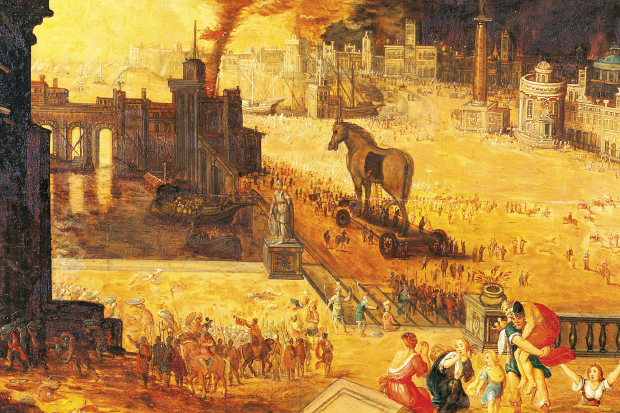
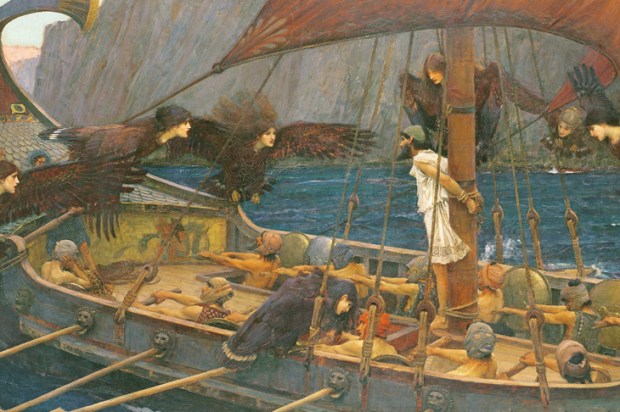
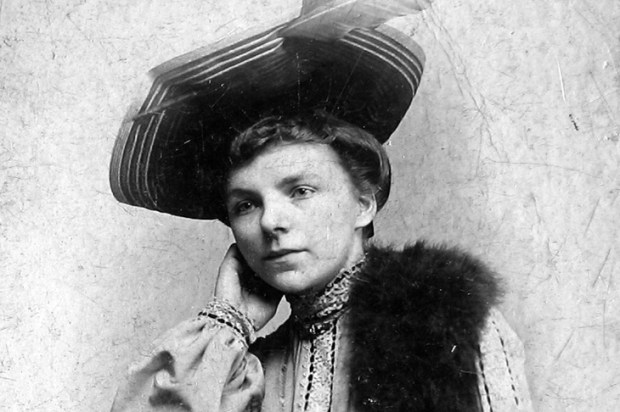
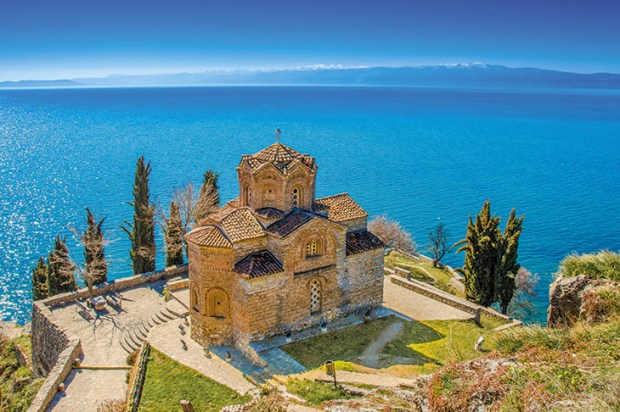

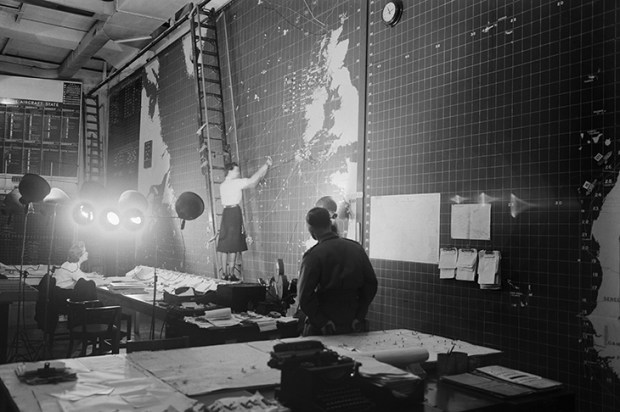
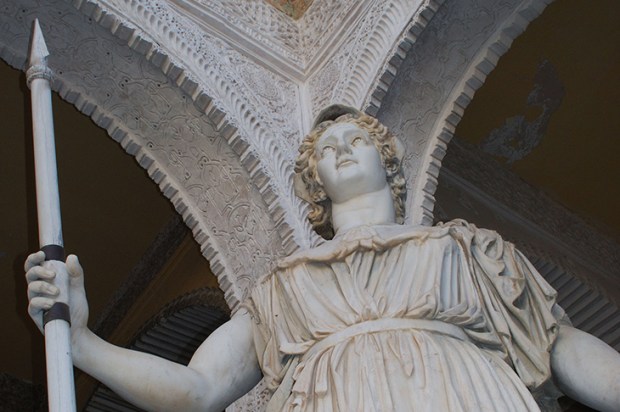






Comments
Don't miss out
Join the conversation with other Spectator Australia readers. Subscribe to leave a comment.
SUBSCRIBEAlready a subscriber? Log in